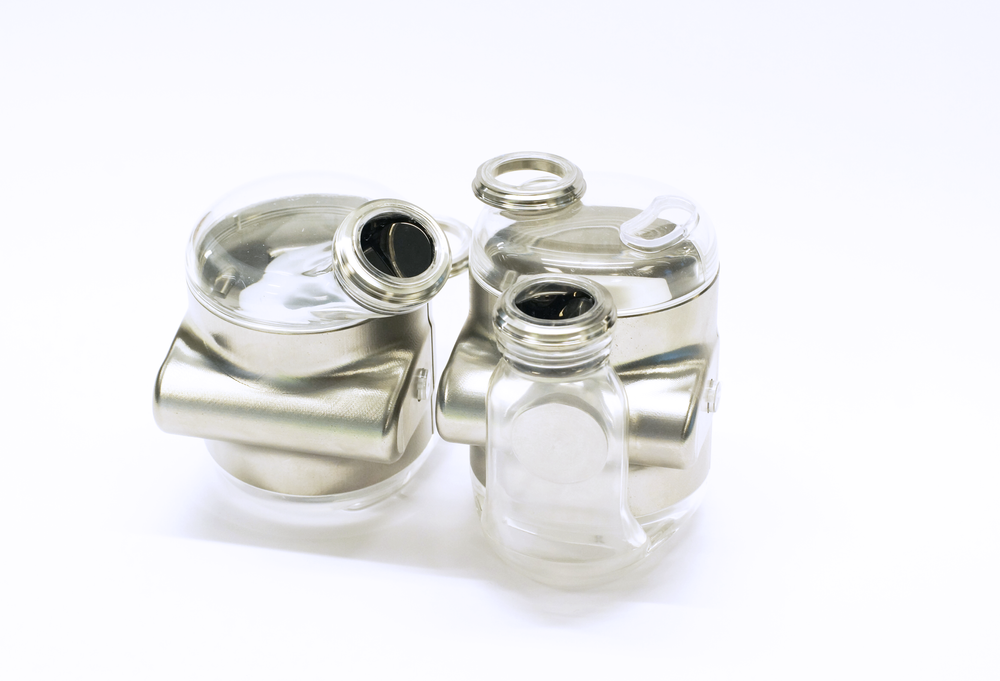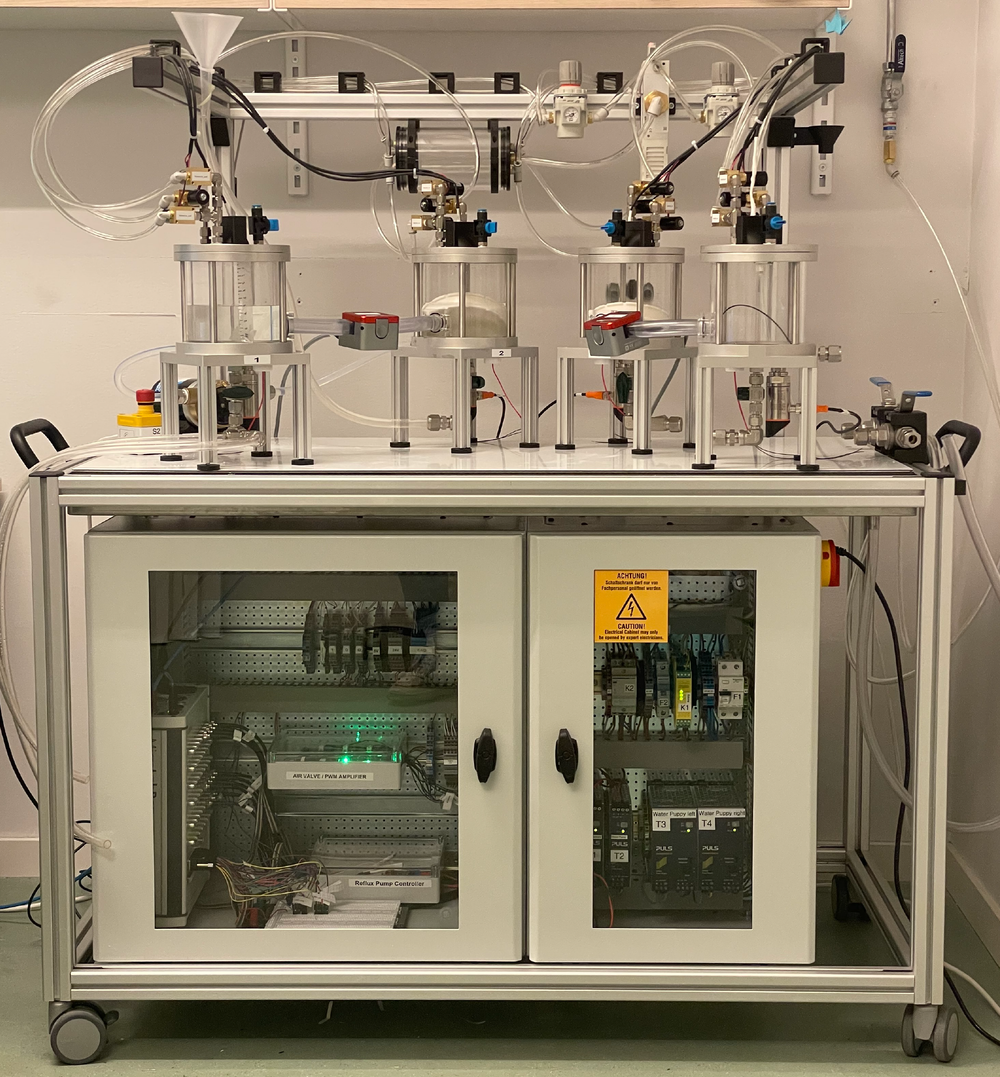From Realheart to Miniheart - how one Swedish company is aiming for gender equality in cardiac devices
 Ina Laura Perkins, CEO Scandinavian Realheart
Ina Laura Perkins, CEO Scandinavian RealheartFor cardiac patients with smaller bodies, current artificial hearts aren’t a viable solution. This could soon change as the startup Scandinavian Realheart is developing a smaller device with the help of a world- first simulator.
Scandinavian Realheart is a medtech company based in Västerås, Sweden which is developing an artificial heart (the Realheart® TAH) that has the potential to help millions of people suffering from severe heart failure. While artificial hearts have been in use for decades, with more than 2,000 patients around the world having received an artificial ticker, the current devices are far from perfect.
“Artificial hearts are already saving lives, but they have complications and side effects. They are also bulky, noisy and not that comfortable for the patients”, says Dr Ina Laura Perkins, CEO of Realheart, which was established in 2007 with the aim to solve many of the shortcomings of the devices currently on the market.
The artificial heart of Scandinavian Realheart.
The need for better instruments is significant and Realheart stands out from the competition as it uses a design that resembles that of the natural human heart. It consists of a four-chamber system designed to generate a physiological blood-flow pattern that mimics the body's natural circulation. It’s a unique approach and one which the company believes has the potential to minimize the blood-related side effects that other instruments suffer from. The device is currently in pre- clinical testing stage with the company aiming for clinical trials in 2024.
Developing the MiniHeart for cardiac gender equality
While the Realheart has great potential to help many patients, it doesn’t offer an optimal solution for women and patients with a smaller body size. Like most other cardiac devices it’s designed as a full-size instrument more compatible with men’s body size. To solve this, the company is now also developing the MiniHeart, a smaller version of the Realheart.
“With the Miniheart we are using the same system on the outside, the same computer, cable and batteries, the only change is that we are miniaturizing the Realheart, because we know that body size can have an impact on the outcome, so we want to do research to determine what is the ideal size of the Miniheart”, says Dr Perkins.
The issue is critical as there are currently no such live-saving devices for patients with a smaller body size than the average man. And the gender gap in cardiac health is more far-reaching than the lack of instruments adapted to women. Physiological differences between men and women result in different patterns when it comes to symptoms, diagnosis and medical interventions, according to Realheart’s CEO.
“We believe the Miniheart will be a big thing because in general women tend to be misdiagnosed or have worse cardiac health outcome than men and this is because we have smaller bodies, we don’t always have the same symptoms. And so, we think it’s really important to highlight this and to achieve gender equality within cardiac health.”
A patient simulator with a unique capability to facilitate development
Achieving optimal blood flow is crucial in cardiac pumps in order to avoid side effects such as blood clots, strokes and anemia. To optimize its products in this respect, Realheart teamed up with KTH – Royal Institute of Technology to develop Sweden’s first patient simulator. The project was financed by Vinnova, the Swedish innovation agency, and has made Sweden one of only five countries in the world to have such an instrument. Realheart and its partners at Linköping University went one step further and added MRI scanning capability to the patient simulator, making it a world-first.
The patient simulator
The simulator, which consists of a series of boxes, cables and computers, simulates a patient with heart failure. By connecting the Realheart to the patient simulator the interaction of the pump with the body can be studied in different scenarios and the performance refined accordingly.
This significantly streamlines product development and reduces costs, as Dr Perkins explains: ”The simulator will be especially important in the development of the Miniheart. It will enable the Miniheart to reach the market faster. It’s a matter of life or death for many patients as implantable cardiac support for patients with small body size is currently unavailable and it’s quite a new thing to use scanning in heart pumps.”
A growing Swedish hub for cardiac medtech
Sweden has a great track record in innovations in the field of cardiac-aid devices with the pacemaker and the heart pump being the most well-known inventions. That Sweden now has a patient simulator is big news in itself, and it being the world’s first simulator that is MRI compatible is even more significant.
Besides its usefulness in developing different kinds of heart pumps and the study of other clinical conditions, it has the potential to enable the development of lots of new inventions. The many recent startups in the medtech sector, for whom the simulator is useful, hold the promise of more Swedish inventions to come.
“It’s really interesting that there’s a growing community of medtech companies in Sweden that have something to do with the heart. The number of companies in this field is growing and Karolinska Flemingsberg is effectively turning into a Mecca for this field,” says Dr Ina Laura Perkins.
Om SwedenBIO
Branschorganisationen SwedenBIO arbetar för en konkurrenskraftig life science-sektor i Sverige. Vi gör det genom att skapa effektiva kontaktytor mellan sektorns olika aktörer, genom att bygga kunskap och genom att ge branschen en stark röst i samhällsdebatten. Våra närmare 300 medlemsföretag har totalt 20 000 anställda och bedriver verksamhet inom läkemedelsutveckling, bioteknik, medicinteknik och diagnostik eller är experter inom bland annat affärsutveckling, finansiering, immaterialrätt och juridik.

